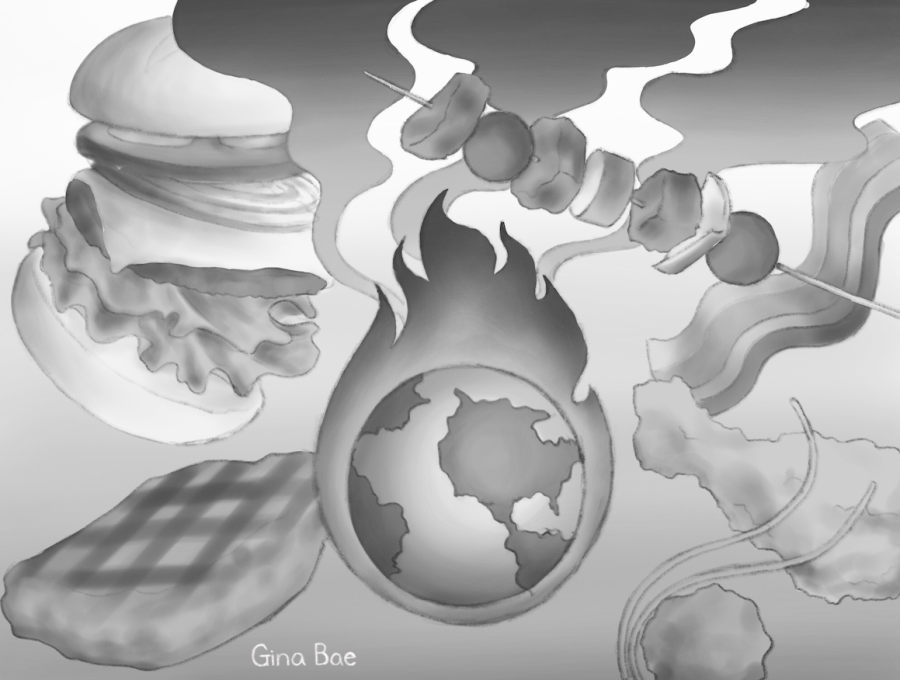Meat. It’s a staple of the American dinner, from Grandma’s meatball spaghetti to a juicy filet mignon. But we rarely stop to wonder, how does the mass production and processing of animals affect the environment?
The subject that has recently been dominating the media is climate change. Yet one contributing factor we rarely discuss is livestock.
We face a global climate crisis. Besides planting trees and recycling, perhaps we can make a difference in other ways.
Americans are infamous for our love of fast and processed food, usually containing meat, such as McDonald’s, Jack in the Box and Taco Bell, to name a few. But we pay a price, and not just from our credit cards.
Among the worst offenders in our rapidly changing environment are methane-producing animals. Their stomachs have multiple compartments and they process food longer. These animals, such as buffalo and sheep, are known as ruminants.
Perhaps the most detrimental to the wellbeing of the environment — and the most farmed — are cattle.
According to the United Nations, 2019 brought record-breaking gas emissions, with livestock producing 18% of greenhouse gases worldwide, even more than transportation.
But it isn’t solely cow farts that cause damage. Even disregarding methane emissions, cattle also use ⅓ of the world’s fresh water, and livestock feed crops command ⅓ of the Earth’s cultivable land.
This means that to make room for livestock, trees, which are beneficial for the environment because they are a carbon sink, must be cleared and substituted with land for grazing by producers of greenhouse gases.
Specifically, agriculture, forestry and other land use account for 24% of greenhouse gases.
Of course, it is wholly unrealistic to expect every American to abruptly switch to a vegan lifestyle.
Change must occur in baby steps. For some people, a vegan diet may be too expensive, while others may live in an area or culture that is heavily meat-reliant.
Still, others may simply want to eat what they choose.
However, there are other options. Meats such as pork and poultry are significantly more environmentally-friendly than beef, as pigs and chickens produce significantly less methane.
Consumers must also consider the health disadvantages of eating red meat and excess dairy.
Harvard’s T.H. Chan School of Public Health stated that too much red meat can raise the risk of diabetes, cancer and heart disease, with dairy products causing similar effects.
Replacing the protein in your diet with food such as beans, tofu and legumes will not only be more sustainable, but also will provide necessary nutrients.
Dark leafy greens such as kale are healthy alternatives to dairy products.
Reducing your consumption of cattle-sourced products will not benefit only your health, but will contribute to the well-being of our rapidly deteriorating environment.
I’m by no means attempting to preach you into becoming a vegan convert. I’m not going to show up on your doorstep to explain the infinite wonders of leading an herbivorous lifestyle.
But the next time you pass the drive-through on your way home from work, perhaps think twice before you order another Big Mac off the menu.

